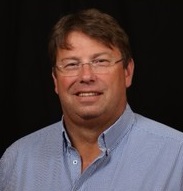 In the latest instalment of our energy management industry executive interview series we spoke to David Kipling (pictured, right), CEO at OEP Group, about the company, the challenges facing energy managers, sustainability, the surging price of gas and why your organisation should be exploring PPA and green tariffs…
In the latest instalment of our energy management industry executive interview series we spoke to David Kipling (pictured, right), CEO at OEP Group, about the company, the challenges facing energy managers, sustainability, the surging price of gas and why your organisation should be exploring PPA and green tariffs…
What are the biggest challenges facing energy managers in the next 5 years?
There is going to be huge focus on energy in the next 5 years, as businesses see a pincer movement of higher energy prices and increasing pressure for sustainability. Add to that the next ESOS deadline in 2023 and the increasing disclosure of energy performance via SECR reports, tight corporate budgets and energy managers are facing a perfect storm.
In 2025 we’ll all be talking about…?
Demonstrating progress in implementing the 2023 ESOS findings (which will may mandatory to implement by then, in my view) and also the potential end of Climate Change Agreements (CCA) as we know them. Businesses’ are going to need to more and more innovative, and are facing a wave of new capital investment.
What should businesses be doing about sustainability?
Our experience is improving sustainability and saving energy costs go hand in hand. It makes sense to accelerate sustainability and there could also be advantages to your business by being ahead of your competitors in being more sustainable. The only downside is capital investment is usually required, but that’s where my company can help.
What do you think will be the impacts of the recent high and volatile gas and electricity prices?
It has exposed weaknesses for many businesses in their energy management. It has demonstrated the risk of higher prices, at levels previously not envisaged, and the potential impacts it could have. I think businesses will start looking much harder at how to save energy and their hedging strategy.
What is the role of energy broking in mitigating the recent prices?
Energy broking has a significant role to play, mainly in helping businesses choose the right tariff (fixed or flexible) and also in hedging strategy, but they aren’t the whole answer. Their scope to manage non-commodity and wholesale costs is limited. Energy brokers in reality can only deliver a limited amount of savings, and more control is in the hands of company’s to reduce energy consumption and use onsite generation to reduce market price road bumps.
What priority should company’s have on energy efficiency and onsite generation?
I think it should be at the top of the agenda. Reducing consumption is the best way to reduce cost (and improve sustainability) and onsite generation offers a defence against market price movements.
Should businesses be exploring PPA and green tariffs?
Entering into a wind or solar PPA is topical, reduces CO2 and offers some defence against volatile wholesale costs. But it doesn’t protect consumers against non-commodity costs for using the grid.
Green tariffs offer CO2 savings but they don’t impact local consumption. They are also subject to the grid price changes that we have seen recently.
My personal view is that both PPA and Green tariffs can be inhibiters to change. If they lock in an amount of usage, this can stop businesses looking for changes that reduce their consumption and their local CO2 emissions.
How can your business help energy managers address these challenges?
OEP helps businesses both identify energy efficiencies and onsite generation, and fund them using our zero capex model. We don’t charge for the upfront appraisal that identifies all the measures that could be enacted. The result is both lower consumption and also stable, predictable prices for onsite generation over the term of our agreement (typically 10 years).
What’s the most exciting thing about your job?
I get a real kick from identifying solutions that have been missed previously. Also its great to see our projects being built within the customer’s premises and to seeing our proposals become the reality.
And what’s the most challenging?
We still face the “too good to be true” scepticism but its rewarding when they relent and see that what we are proposing can really work, and is supported by the data.
What’s the best piece of advice you’ve ever been given?
Focus. Its easy to get distracted to jump on the latest bandwagon, but we are going to stay very focused on energy intensive manufacturers, where we can have the biggest impact for our planet.



 In the latest instalment of our energy management industry executive interview series we spoke to David Kipling (pictured, right), CEO at
In the latest instalment of our energy management industry executive interview series we spoke to David Kipling (pictured, right), CEO at